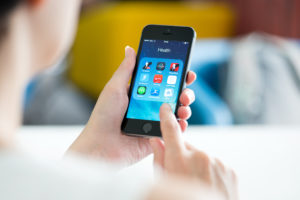
A recent case out of Middletown, Ohio made headlines this week about a man’s pacemaker providing information that may ultimately land him in jail.
Ross Compton told investigators that he was sleeping when a fire started in his house. Mr. Compton explained that he had just enough time to pack some items and climb out a bedroom window before the house burnt to the ground. Investigators obtained a search warrant for Mr. Compton’s pacemaker data which showed that during the time period of the fire Mr. Compton was awake and active.
This isn’t the first case of technology being used to prove or disprove a case. A physical trainer in Canada had an expert analyze his current activity data and compare it to other physical trainers to show how an automobile accident had affected his life. In March 2015, a woman claimed that she was sexually assaulted while she slept, but the tracking device she wore showed that she was awake and walking around.
These cases highlight the importance for everyone to know what their devices are saying about them. Pacemakers, Fitbits, cell phones, watches, tablets, and televisions are just a few devices that are tracking data by your activity.
Most smartphones come with a preloaded activity tracker that will count how many steps you take, how far you go, and how many stairs you climb.
These same phones are also preloaded with GPS tracking service to show where you go and how long you were there and keep track of your frequent locations.
Fitness/activity monitors like Fitbit, Apple watch, Nike Fuelband, and Jawbone calculate everything from heartbeat to sleep patterns to caloric intake. Fitbit can even track when you are around another Fitbit user.

Netflix and Hulu keep a record of all your account activity including what show you watched on what day.
There are apps out there to monitor menstruation, pregnancy, moods, weight loss, bowel movements, car performance, and even sunscreen usage.
Sometimes you don’t even know your activity is being monitored. Earlier this month, Vizio was fined $2.2 million for failing to notify customers that it was tracking their viewing habits. Doorbells are now equipped with small cameras and microphones to record movement outside front doors.
Technology isn’t a bad thing, but it’s important to know that all of this becomes relevant when you file a personal injury lawsuit. If you claim that a car wreck has adversely affected your life, health, and well-being, does your data support this? Are there fewer steps in your activity tracker? Does your phone show you going out less? Does your Netflix account show an increase in usage?
Be aware of the smart devices in your life and what your data says about you. This information can help or hurt your personal injury case.
